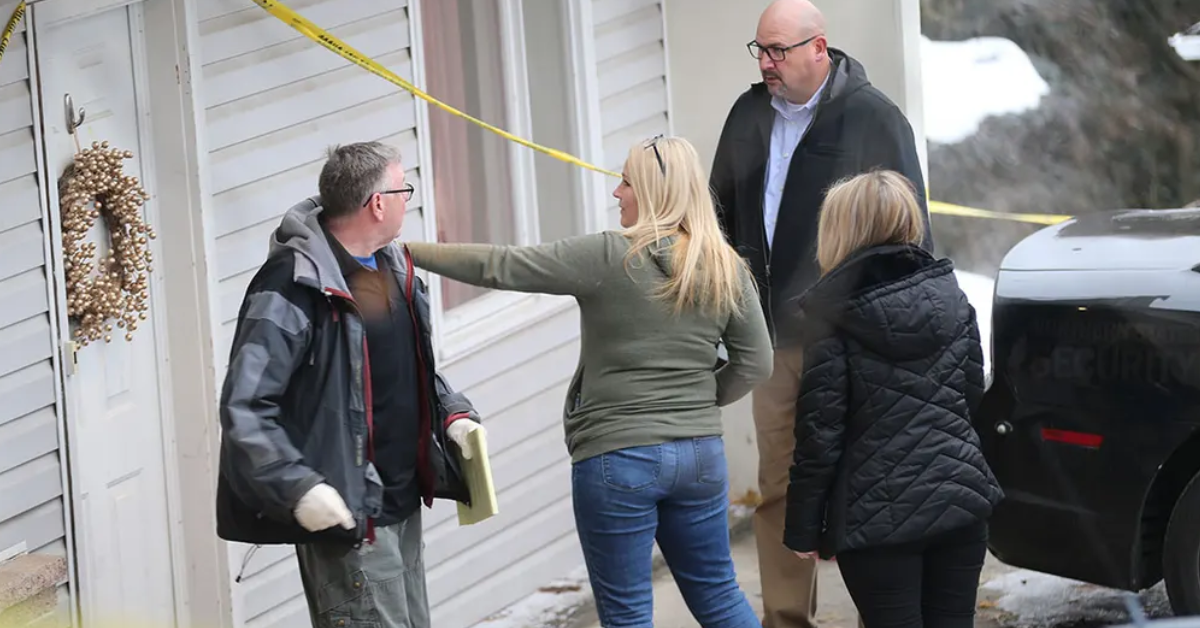The defense motions in the high-profile quadruple murder case against Bryan Kohberger, the suspect in the brutal stabbings of University of Idaho students, continued for two days this week. While no official decisions were made, the hearings brought to light new and important details that could play a critical role in his upcoming trial.
Kohberger’s defense team has raised several concerns, but many of their arguments failed to persuade the judge. Some of the most notable developments included the confirmation of earlier reports that Kohberger was wearing rubber gloves when arrested at his parents’ house and a surviving eyewitness whose credibility was questioned in court.
Kohberger’s Arrival at Pullman
It was confirmed that Bryan Kohberger arrived at Washington State University in Pullman in June 2022, shortly before the tragic killings occurred. This detail, while seemingly minor, ties Kohberger more closely to the location where the crime is believed to have been planned.
DNA Evidence a Key Concern
One of the most debated issues during the hearings was the DNA evidence linking Kohberger to the crime scene. Kohberger’s defense team asked for investigative genetic genealogy evidence to be suppressed, arguing that it violated privacy rights.

However, Judge Steven Hippler was not convinced, stating that there is no reasonable expectation of privacy when DNA is left at a crime scene. He questioned whether the DNA found on a knife sheath beneath one of the victims’ bodies was not sufficient to establish probable cause.
“You don’t need anything more than DNA on the knife sheath, do you?” Judge Hippler asked, highlighting the importance of this evidence in the case. Legal experts believe that Kohberger’s connection to the crime through DNA is one of the strongest pieces of evidence against him.
Eyewitness Testimony Called into Question
During the hearings, the defense also raised doubts about the reliability of an eyewitness. This surviving housemate claimed to have seen a masked man leaving the scene after hearing signs of a struggle. The defense argued that this witness, despite being present during the attacks, went to bed and failed to alert anyone until hours later. The witness also contradicted herself in statements, such as one where she mentioned hearing a specific victim running up the stairs. However, the victim was actually found dead in an upstairs bedroom.
In response, Latah County Deputy Prosecutor Ashley Jennings defended the eyewitness, emphasizing that her description of the suspect—a tall, slender, white male—remained consistent throughout her statements and was crucial in identifying Kohberger as the potential perpetrator.
Unknown DNA Samples and Kohberger’s Defense
Another crucial element discussed in court was the discovery of DNA from two unknown males at the crime scene. One sample was found on a handrail and another on a glove outside the house. The defense raised the possibility that these DNA samples might suggest that Kohberger is not connected to the crime. However, Judge Hippler dismissed this claim, noting that Kohberger’s DNA was found on the knife sheath, which remains the most compelling piece of evidence in the case.
Kohberger’s Arrest and FBI Involvement
The court also heard about the moments leading up to Kohberger’s arrest at his parent’s home in the Pocono Mountains of Pennsylvania. The FBI had obtained Kohberger’s trash to test for evidence, which they used to build a stronger case against him. Meanwhile, law enforcement officers were conducting surveillance on Kohberger’s residence, even employing snipers to watch him inside his house, as detailed in the court proceedings.
Defense attorney Jay Logsdon questioned the legality of the SWAT raid, arguing that police had no justification for the swift and forceful entry into Kohberger’s home. However, Judge Hippler noted that the need for officer safety and the preservation of evidence justified the no-knock warrant that was issued for the raid.
Controversy Over Amazon History Records
One of the more controversial issues raised by Kohberger’s defense team was obtaining his Amazon shopping history without a warrant. Defense attorneys argued that this violated Kohberger’s privacy rights. However, prosecutors argued that an expectation of privacy does not protect business records and can be legally obtained in criminal investigations. Legal experts have said that Kohberger’s defense will face an uphill battle in challenging the legality of this evidence.
Trial Preparations and Next Steps
The two-day hearing ended with no immediate ruling, but Judge Hippler made it clear that he would issue his decisions on several motions soon. Kohberger’s defense team had requested a Franks hearing, which could potentially undermine the probable cause for his arrest, but Judge Hippler had not decided on this matter yet.
Kohberger is set to face trial later this year for the home invasion murders of four University of Idaho students: Madison Mogen, Kaylee Goncalves, Xana Kernodle, and Ethan Chapin. The trial will take place in Latah County, and Kohberger has pleaded not guilty to all charges. If convicted, he could face the death penalty.
Kohberger’s Academic Background
At the time of the murders, Kohberger was a Ph.D. student studying criminology at Washington State University, just across the state line from the University of Idaho. The victims, all undergraduate students, were stabbed to death in their off-campus residence in Moscow, Idaho.
Disclaimer: This article has been meticulously fact-checked by our team to ensure accuracy and uphold transparency. We strive to deliver trustworthy and dependable content to our readers.


 by
by 

